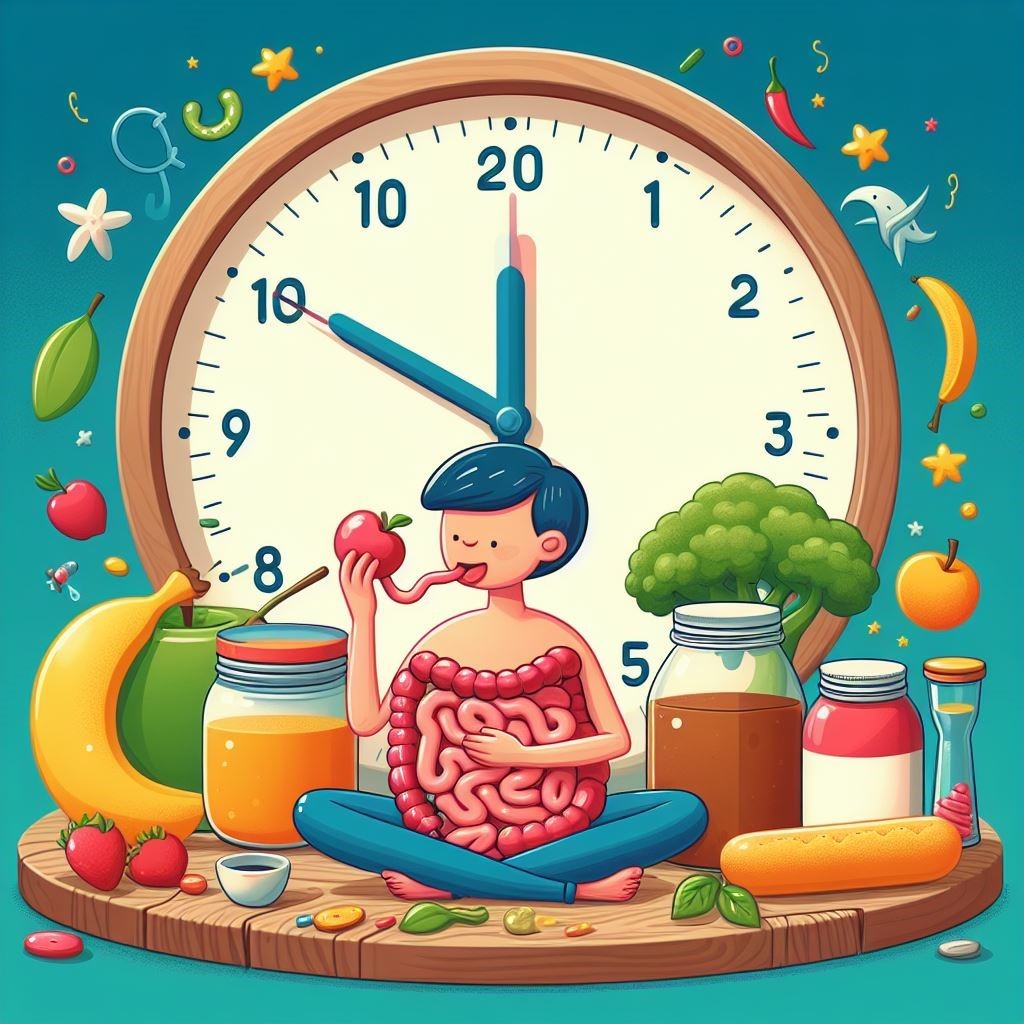How Long to Digest Food: The Science Behind Digestive Delays
Discover the essential insights into digestive health by understanding “How Long to Digest Food.” This guide simplifies the science behind digestion, exploring factors that influence the speed of food movement through your system. Understanding how long to digest food is essential in managing digestive health. This in-depth guide dives into the science of digestion and factors that impact how quickly or slowly foods move through your system.
-
Key Takeaways on How Long to Digest Food
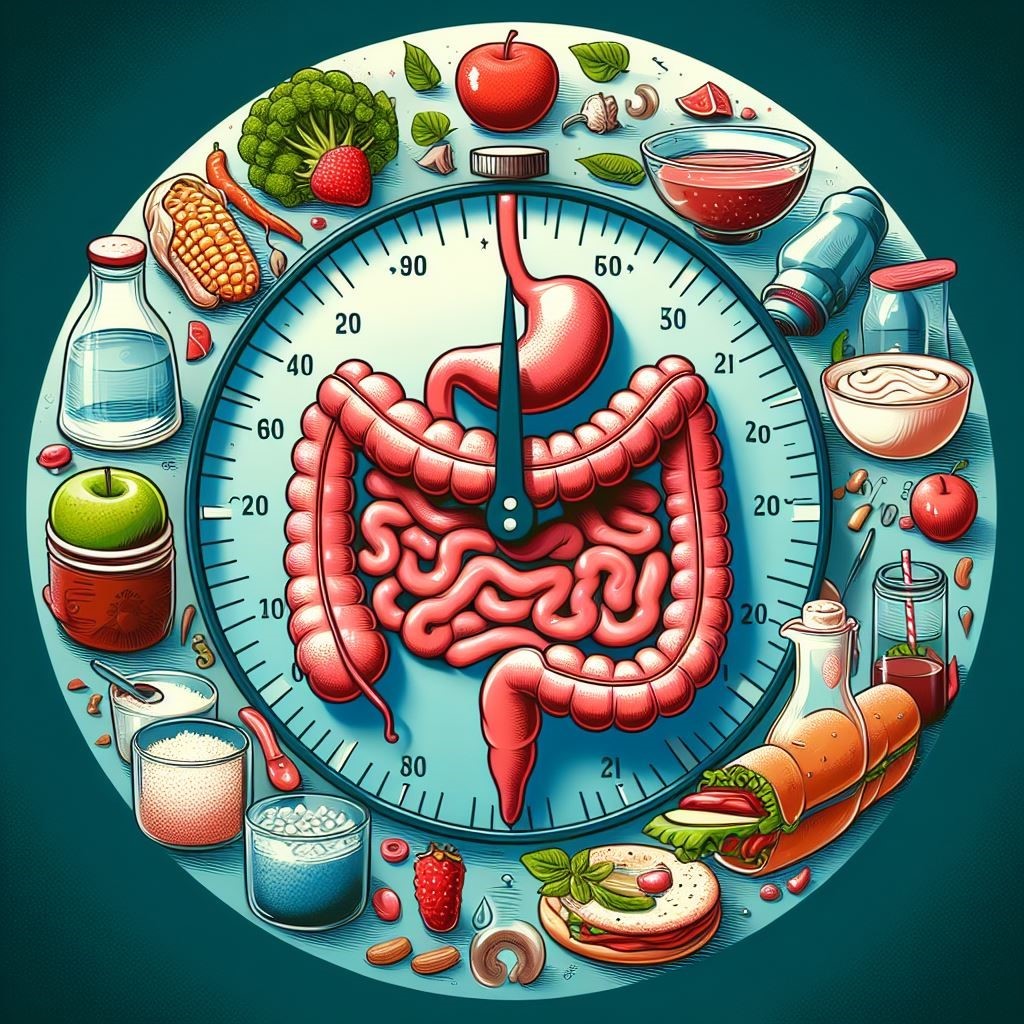
- The average total digestion time is 24-72 hours from mouth to bowel elimination.
- Digestion begins in the mouth and takes 3-5 hours in the stomach and 1-5 hours in the small intestine.
- Fiber, fat, and protein-rich foods take longer to break down.
- Stress, medications, age, hydration, and gut health influence digestion time.
- Chewing thoroughly, eating smaller meals, exercising, and probiotics may improve digestion.
What Determines How Long to Digest Food?
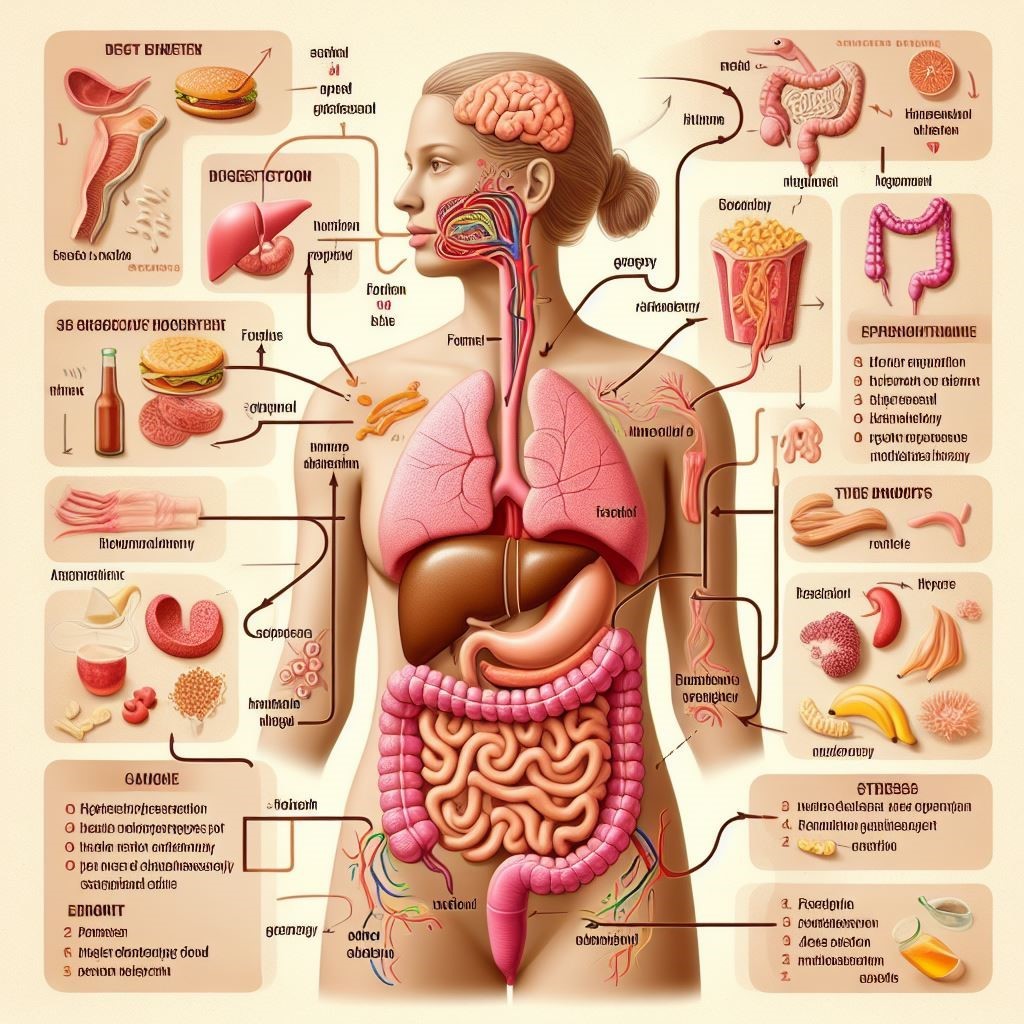
What Determines How Long to DiMany bodily processes turn food into molecules your body can absorb and utilize for energy and cell repair. Here is an overview of how long digestion takes in each organ:
Mouth
Digestion starts as you chew, breaking food into smaller pieces while mixing in saliva containing enzymes like amylase and lipase to begin the chemical breakdown of starches and fats. Thorough chewing starts the digestive process on the right foot and influences how long to digest food.
Stomach
After swallowing, food travels down the esophagus into the stomach. Gastric juices comprise hydrochloric acid and mucus, and the enzymes pepsin and rennin continue breaking food down into a semi-liquid form called chyme.
Proteins and fats get unfolded by acid and enzymes for further digestion. Mechanical churning mixes food with gastric secretions. Overall, digestion takes about 3-5 hours in the stomach, which affects the total time for how long to digest food.
Small Intestine
Absolute nutrient absorption happens in the small intestine, where enzymes from the pancreas, liver, and small intestine complete the chemical digestion of food.
Muscular contractions called peristalsis keep slowly moving chyme along the 20+ feet of the small intestine for optimal digestion and absorption into the bloodstream. Transit through the small intestine takes 1-5 hours, depending on the composition of your meal, playing a pivotal role in determining how long to digest food.
Large Intestine
The last stop is the large intestine, where excess water and electrolytes get reabsorbed before waste is compacted into the stool for elimination through bowel movements. Transit time is 12-24 hours or more, depending on individual bowel habits, affecting how long to digest food fully.
What Affects Digestion Time? What Affects How Long to Digest Food?
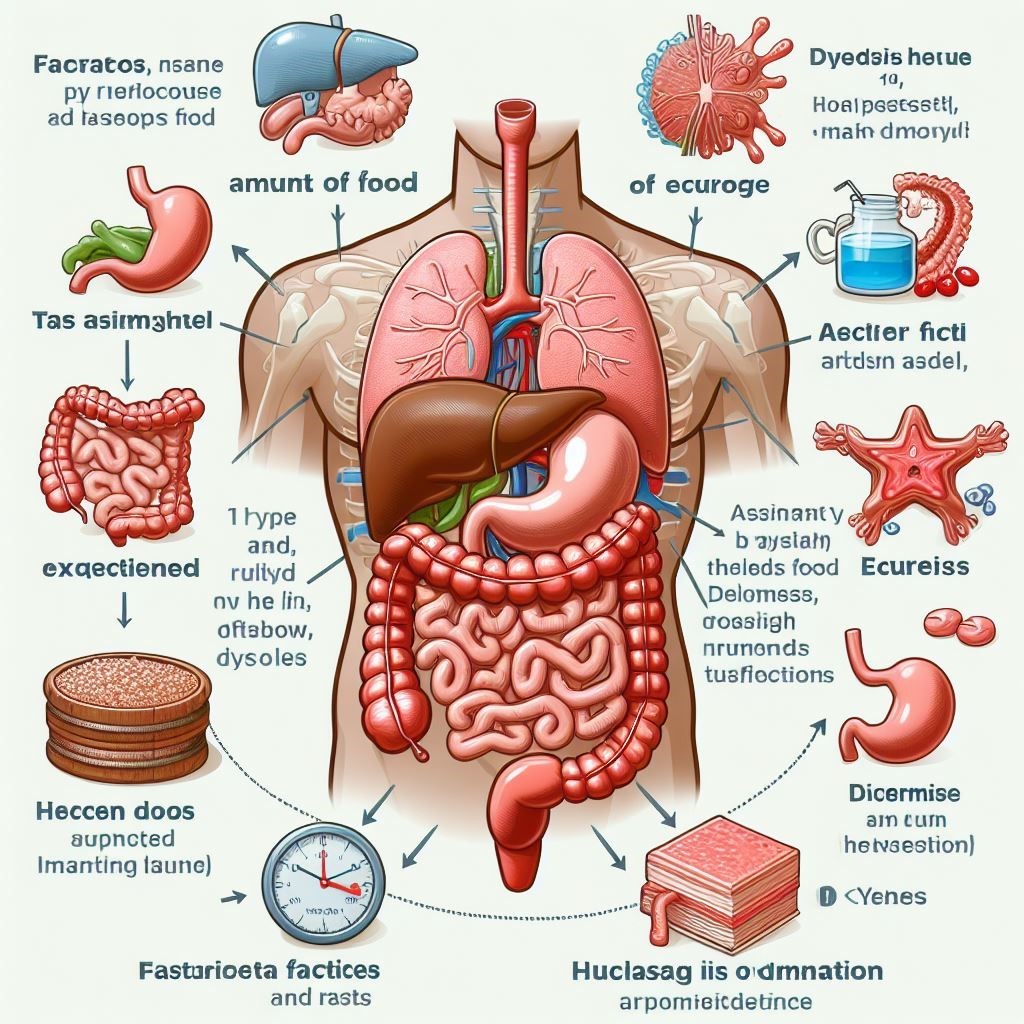
Many variables impact how quickly or slowly foods move through your digestive system, influencing how long it takes to digest food.
Fiber Content
High-fiber foods like beans, vegetables, and whole grains take longer to break down than low-fiber refined carbs, increasing how long to digest food. Soluble fiber soaks up water and slows transit time, giving bacterial enzymes more time to ferment fiber and release nutrients.
Fat Content
High-fat foods like meat, oils, dairy, and fried foods delay gastric emptying and digestion. Fat digestion requires more bile release and enzyme activity, so fatty foods linger longer in the stomach and intestines than lean proteins or carbs.
Protein Content
Protein-rich foods emptied slower from the stomach and took longer to break down. Proteins like meat, eggs, and beans require more gastric juices, increasing stomach retention to 2-3 hours or more.
Food Sensitivities
For individuals with food sensitivities like lactose intolerance or gluten sensitivity, problem foods pass through the intestines undigested, leading to gas, bloating, and changes in motility.
Gut Health
Gut flora imbalance or conditions like SIBO that affect enzyme levels can hamper digestion and influence how long to digest food. Bacterial overgrowth causes excess gas production that may slow down motility.
Medications
Some prescription drugs, like antidepressants, blood pressure meds, and opioid pain medications, are known to slow digestion and cause constipation.
Stress Levels
Stress inhibits digestion by reducing blood flow and enzyme secretions. The gut is susceptible to emotions. Stress hormones like cortisol can suspend digestion, contributing to diarrhea or constipation.
Age
Digestive efficiency decreases with age as enzyme and stomach acid production declines. Older adults commonly experience longer gastric emptying time and sluggish motility.
Dehydration
Dehydration leads to a harder stool that lingers longer in the intestines. Adequate hydration is vital for regular bowel movements and preventing constipation.
Physical Activity
Exercise helps speed digestion by stimulating muscle contractions and circulation. Light walking after eating supports healthy motility. Exercising too soon after eating can hinder digestion.
How Long to Digest Food?
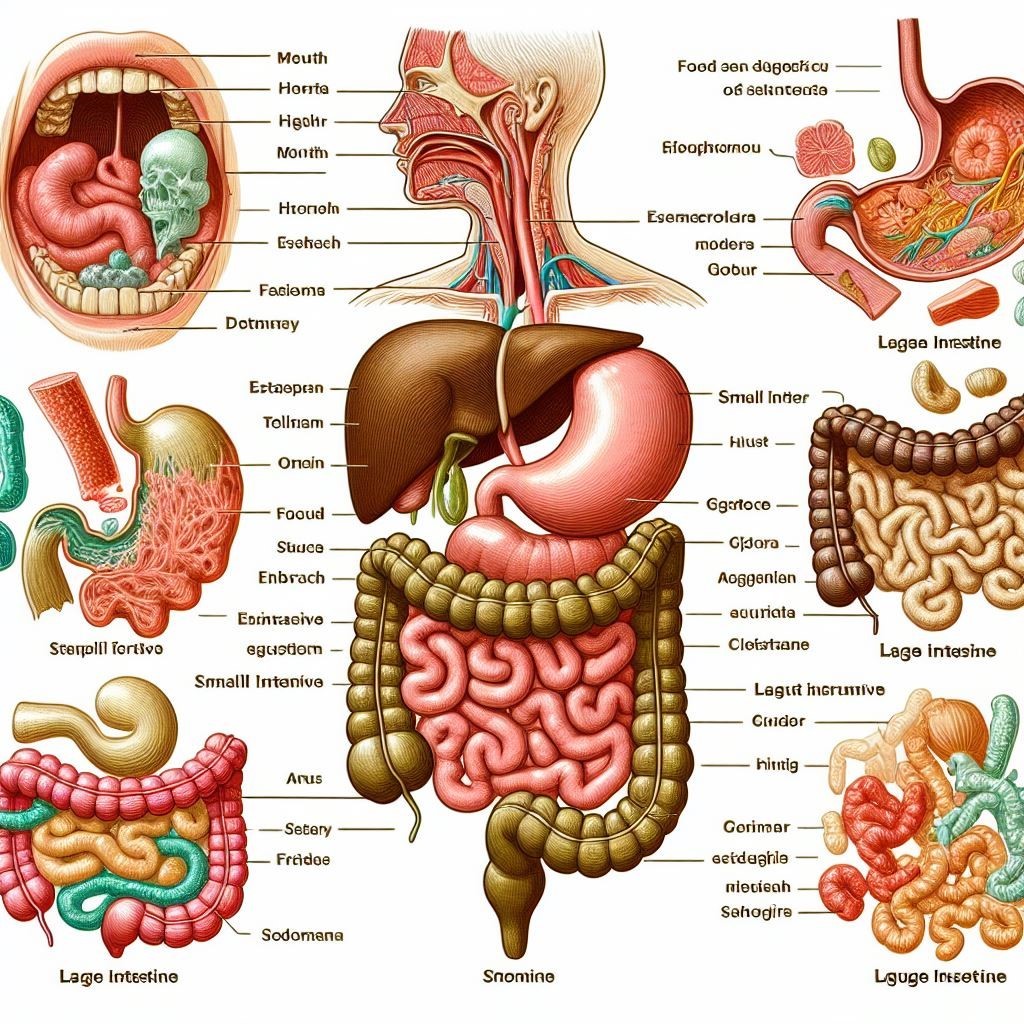
Digestion time varies but typically ranges from 24 to 72 hours. It starts in the mouth, moves through the stomach and small intestine, and ends in the large intestine. Fiber, fat, and protein take longer to break down. Factors like stress, medications, gut health, hydration, and activity levels affect digestion. Listen to your body, avoid delay-inducing combos, and seek medical advice for persistent discomfort or changes in digestion patterns.
Tips to Improve How Long to Digest Food
- Chew food thoroughly to give enzymes in saliva a head start.
- Limit distractions and stress during meals to maximize “rest and digest.”
- Stay hydrated with water, herbal tea, broths, and diluted juices.
- Include fermented foods like yogurt, kefir, and kimchi for probiotics.
- Eat smaller, frequent meals instead of large ones to prevent overload.
- Allow 2-3 hours between eating and lying down or exercising.
- Take walks after meals to support gastric motility.
- Quit smoking to remove toxins that inflame the digestive tract.
How Food Combinations Impact Digestion
Combining certain macronutrients can also impact digestion time:
- Eating protein and fat together slows digestion. Fat needs more time in the stomach, while protein takes longer to break down.
- Pairing fiber-rich carbs with protein helps balance speed and slower digestion. The fiber slows down the fast-digesting carbs.
- Eating fruits alone allows their simple sugars to be digested rapidly rather than fermented when combined with heavier foods.
- Ensure adequate hydration when eating high-fiber foods, allowing bulkier stools to pass quickly and preventing constipation.
Signs of Impaired Digestion
Symptoms like bloating, heartburn, constipation, diarrhea, and gas after eating can indicate impaired digestion, affecting how long to digest food. If you regularly experience:
- Discomfort lasting hours after eating.
- Frequent belching or flatulence
- Changes in bowel habits
- Sense of fullness, nausea, cramps
- Undigested food in stool
See your doctor to identify potential causes like food intolerances, enzyme deficiencies, gut infections, IBS, or other conditions that may benefit from treatment. Keeping a food journal can help pinpoint problematic foods your body struggles to digest properly, increasing how long it takes to digest food. Targeted dietary changes and natural supplements like digestive enzymes, probiotics, or herbal remedies may relieve indigestion.
Tips for Easy Digestion
- Focus meals around one macronutrient group at a time rather than mixing multiple.
- Avoid excessive combinations of fat and protein that prolong gastric emptying.
- Consume fruits alone as snacks between meals.
- Save vegetables with high insoluble fiber for the second half of meals.
- Drink fluids away from meals rather than with meals to enable easier digestion.
- Allow 2-3 hours after large meals before lying down. Remain upright to use gravity to your advantage and prevent reflux.
- Take a short 5-10-minute walk after eating to stimulate digestion and circulation.
Being mindful of how you combine foods can go a long way toward preventing indigestion or gastrointestinal discomfort. Consult a nutritionist or digestive health specialist if you continue experiencing lingering symptoms after meals.
Conclusion on How Long to Digest Food
Average digestion time varies widely based on the individual and food composition. While delay causes frustration, be patient with your body’s needs. Support healthy digestion by managing stress, staying hydrated, eating mindfully, and getting gut-friendly nutrition. Pay attention to signs of impaired digestion and consult a doctor for persisting symptoms.

